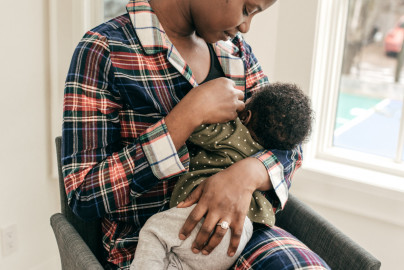Blog

Coping With Postpartum Depression During a Pandemic
In the weeks following childbirth, many new mothers experience a psychological phenomenon known as postpartum depression. Induced by a combination of hormonal fluctuation, fatigue, and the psychological adjustment to being a mother, postpartum depression can manifest in a wide range of emotional symptoms. Most women experience a very mild form of postpartum depression, which is often referred to as the “baby blues.”
However, for some new moms, the baby blues transitions from something mild and temporary into an ongoing, intense condition. Postpartum depression symptoms can include:
- Severe mood swings
- Excessive crying
- Persistent and extreme anxiety
- Overwhelming fatigue
- Extreme changes in appetite or sleep behaviors
- Difficulty bonding with your baby
- Feelings of hopelessness
- Intrusive thoughts of harming yourself or your baby
Postpartum depression is challenging enough on its own and can be even more difficult to deal with during times of great upheaval and stress. For new moms during the COVID-19 pandemic, grappling with postpartum depression can seem like an insurmountable task. However, although improving your mental health is more difficult now, there are still ways that you can manage your symptoms and cope with postpartum depression.
Get Help
With social distancing in place, you may not have as much access to face-to-face time with your regular emotional support network or be able to see a therapist in person, but there are some online and virtual alternatives available. These options include online paid platforms such as Talkspace, BetterHelp, and Amwell, which can connect you with accredited mental health professionals via a phone, tablet, or computer.
Another option is 7 Cups, which is an online emotional health service provider and support network. They offer a mix of services, including free 24/7 chats with volunteer listeners, forums to connect with others, and affordable online therapy. If you’re interested in participating in virtual group support meetings, you can also check out Postpartum Support International’s support meeting schedule.
If your symptoms continue to increase in severity, and can include thoughts of self-harm, suicide, or hurting your baby, be sure to seek out help immediately. Call your doctor, go to the ER, or connect with an emergency hotline via phone or text. To call the National Suicide Prevention Lifeline, call 1-800-273-8255. As an alternative, you can text HOME to 741741 to reach the National Crisis Text Line.
Focus on Self-Care
During this time, it’s important to take care of yourself as much as possible and to recognize that none of this is your fault. Postpartum depression and COVID-19 are both beyond our control, and it’s 100% OK for you to ask for help. At the same time, be sure to treat yourself with small tokens of kindness. Some ideas include:
- Taking a walk
- Indulging in a relaxing bath
- Meditating
- Taking a break from social media and the news
Although this is a difficult time, it’s important to remember that it’s also temporary. You are not alone. For more help coping with postpartum depression in the San Francisco area, contact Pacific Women’s Obstetrics & Gynecology today.
Back to blog